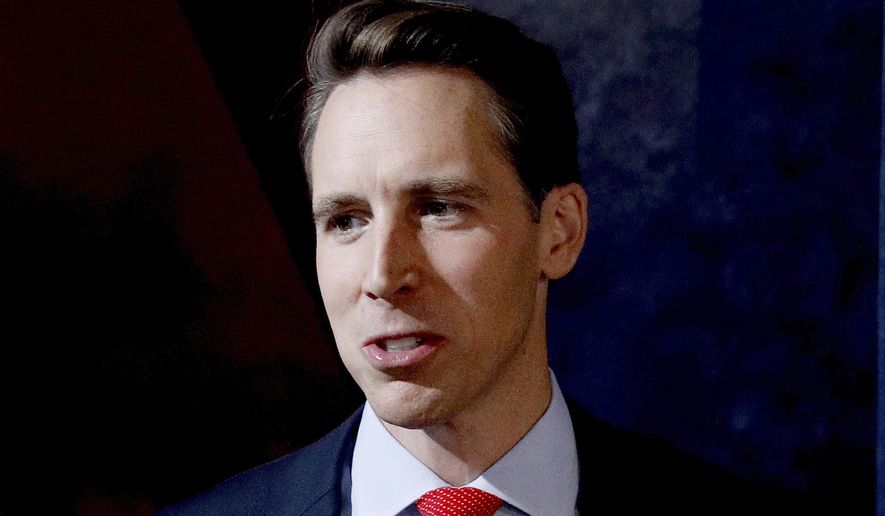OPINION:
Sen. Josh Hawley, Missouri Republican, is evidently not afraid to be the skunk at the garden party. Last week, the freshman senator spoke at the Washington, D.C., outpost of Stanford University and unleashed a searing critique of social media. This would be the equivalent of berating the Bible at Liberty University or having the temerity to promote free market capitalism at Williams College.
Granted, criticism of social media giants is rife these days and comes from all intellectual and ideological quarters. Sen. Elizabeth Warren of Massachusetts, also a Democratic presidential candidate, has unveiled a plan to break up the tech giants, arguing (not unconvincingly) that their sheer size has undermined startups and therefore the free market system itself. Chris Hughes, an early investor in Facebook, has echoed the senator’s claims, arguing in The New York Times this week that “it is time to break up Facebook.”
Republicans, meanwhile, including none other than the president of the United States, have berated social media giants for their arbitrary and capricious approach to free speech. Twitter, Facebook and Google are all too keen to block voices on the right while letting leftists have access to their platforms unfettered. Given the outsize role social media now has on democratic discourse, this is not a complaint to be dismissed.
While the senator from Missouri shares some of these critiques, what made his address so remarkable is that he took aim at the very business model of Silicon Valley itself. Mr. Hawley does not want to simply tinker around the edges — an antitrust case here, a more robust commitment to free speech there. He wants a broader and overdue consideration of the effect social media is having on our society.
“Consider for a moment the basic business model of the dominant social media platforms,” he said. “You are familiar with them. You might think of it as akin to financial arbitrage. Maybe we’ll call it attention arbitrage. Users’ attention is bought by tech giants and then immediately sold to advertisers for the highest price.”
Here, the senator points out the most nefarious aspect of social media. It thrives by vacuuming up our most precious resource, one that is wholly nonrenewable: time.
Social media is unusual, if not wholly unique in this regard. Broadcast television, which traditionally makes its money by selling advertisements, is another business model based on gobbling up its users’ time. The more you watch, the more commercials you see.
But even that’s changing for the better: Netflix, for example, doesn’t sell ads. In fact, the streaming service doesn’t care if you watch a minute of its programming so long as you pay the monthly fee. In this way, Netflix’s business model is more akin to that of a private gym than a TV network. Social media companies are unusual in their straight-line connection between time and profit.
What’s the upshot of basing a business model on taking someone’s time? “To simplify that a little bit, it’s preserved through addiction,” Mr. Hawley said. “Social media only works as a business model if it consumes users’ time and attention day after day after day. It needs to replace the various activities we did perfectly well without social media, for the entire known history of the human race, with itself. It needs to replace those activities with time spent on social media. Addiction is actually the point. That’s what social media shareholders are investing in: the addiction of users.”
This provides a useful, if chilling, framework for thinking about social media companies. They’re less like the tech giants of a generation ago — say Microsoft or eBay. Instead, the social media companies are more like other addiction-dependent businesses — think tobacco, alcohol and gambling. (NB: I happily partake in at least two of those.)
Ben Franklin, wise in so many respects, evinced a cramped, depressing and bizarrely prescient view of the world when he wrote that “time is money.” Yes, time is money, particularly to the Facebooks and Twitters of the world. But it’s also much more than that. A business that thrives by taking it away from you is not one to be trusted or embraced.
⦁ Ethan Epstein is deputy opinion editor of The Washington Times. Contact him at eepstein@washingtontimes.com or on Twitter @ethanepstiiiine.




Please read our comment policy before commenting.